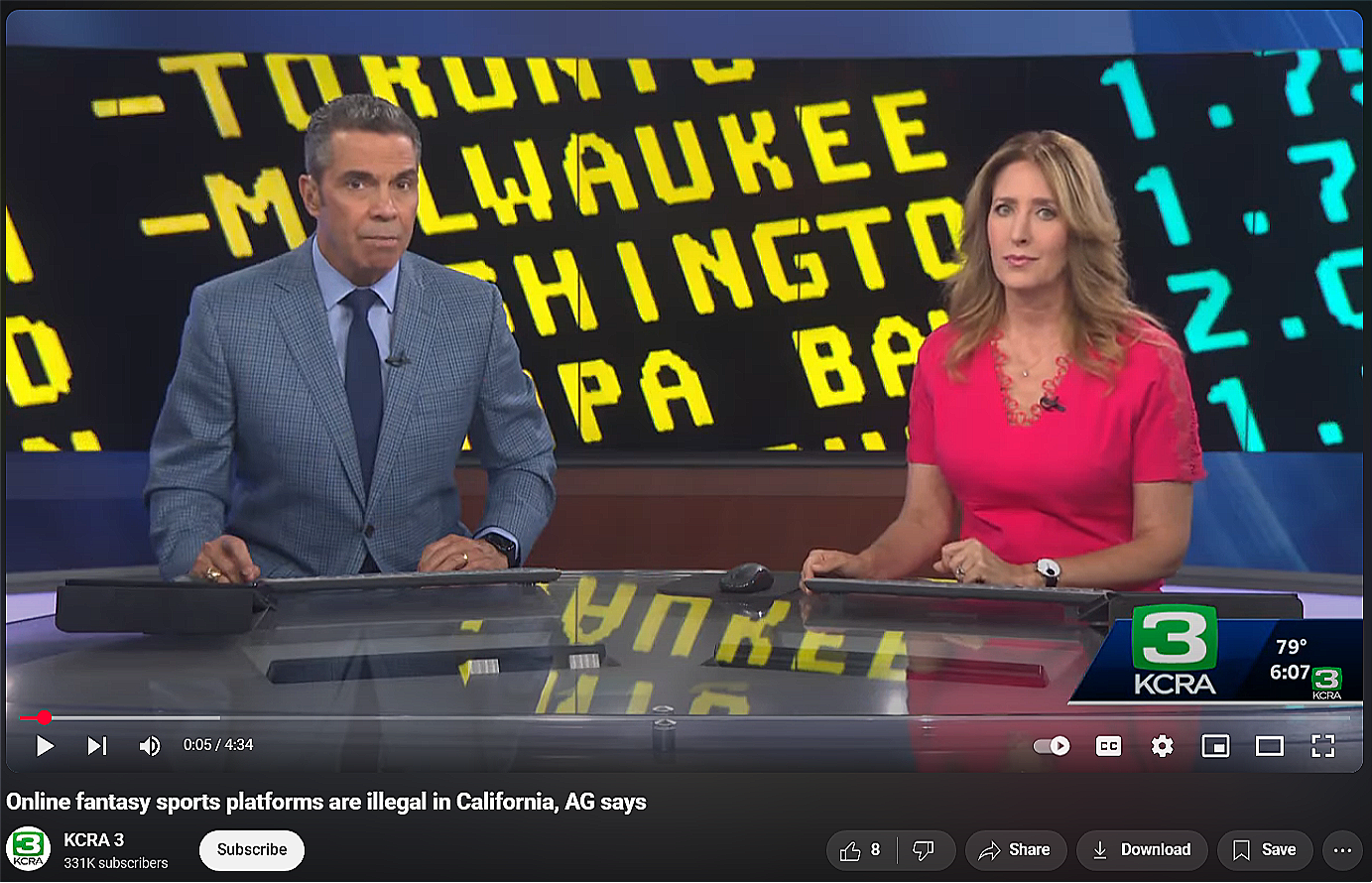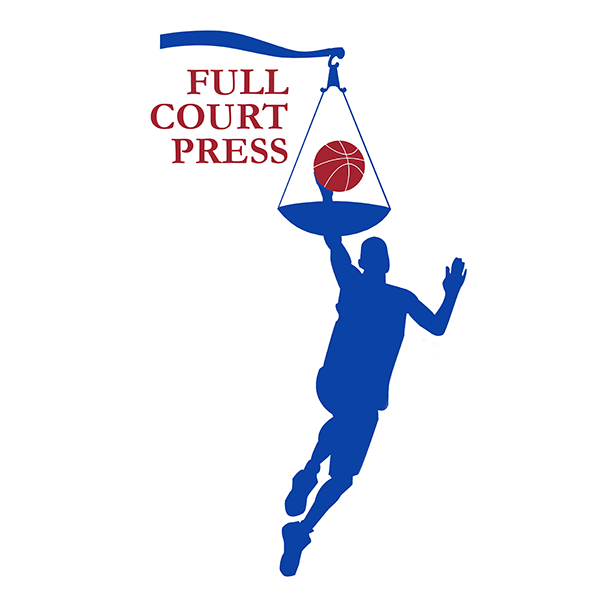Sports Markets Are Heating Up
Part I - Not a game: The legal fault line beneath daily fantasy sports
California’s Shift on Daily Fantasy Sports
In our last post we quickly covered California Attorney General Rob Bonta’s opinion on daily fantasy sports. Whether or not there will be enforcement action wasn’t clear a couple of weeks ago when the opinion came out:
Now there’s a new development:
It appears enforcement action is on the horizon–at least, that’s what Bonta hinted at.
At the heart of the litigation will be the question: Is DFS gambling? That’s the surface-level issue. But the real issue demands deeper analysis.
A Contrarian View
If our count is right, in the first video above, the word “game” is used four times.
The argument that daily fantasy sports constitutes gambling hasn’t been successful in the past. New York was the main battleground, with litigation sparked by Ethan Haskell’s story in the New York Times; litigation ensued, but Attorney General Schneiderman settled. DFS companies lobbied aggressively, dropping $100,000 on Jim Kelly and Vinny Testaverde for support. The New York legislature passed a law, Governor Cuomo signed it, and almost immediately, a lawsuit followed. Plaintiffs–a few state residents–challenged both Cuomo and the New York State Gaming Commission on constitutional grounds. That sounds a lot, and it is a lot, but from start to finish, that was only 12 months.
Those residents eventually lost, and the state prevailed (and, by extension, the DFS industry) for a simple reason: The challenge for regulators, and anybody else who challenges the industry, has always been the undeniable presence of skill involved in fantasy sports. Even under the more lenient material element test (a slightly lower bar than the predominance test), it’s hard to convincingly make the case that DFS is a game of chance. It’s not hard to find credible expert testimony who will argue, rightfully so, that DFS involves skill. Skilled attorneys will ride that argument to its natural conclusion: If there is enough skill, it is not gambling, period.
Still, the public remains skeptical. If it looks and feels like gambling–doesn’t that make it gambling? Not legally, no, at least not without a legal basis and an operating statute. That said, our intuition misleads us at times, but this is not one of those times. Daily fantasy sports actually is gambling.
💥The Twist
Why is daily fantasy sports gambling?
Because daily fantasy sports is not a game.
Wait, what? How can that be? Everybody believes it is a game.
We know this runs counter to the view held by tens of millions–but hear us out: We’ve got the receipts.
⚖️ Redefining DFS as a Contract On Contingent Events
At its core, DFS resembles a complex event contract and/or a swap–a contingent agreement that places it squarely under the CFTC’s jurisdiction.
🚧 Who Might Challenge DFS Legality On Those Grounds?
Clearly, the 27 states that regulate DFS aren’t likely to challenge it. Then there’s a separate group of 18 states where DFS is generally allowed but not formally regulated. Would any of them reverse course? And if so, what would their argument even look like?
Hey, CFTC, you are late to the ‘game,’ but we believe you should have jurisdiction on this instead of us. And while you’re at it, maybe declare daily fantasy sports illegal.
Sure, DFS may not be a golden goose, but it’s not pocket change either. Bullish projections for 2020 pegged total entry fees at $30 billion. A more grounded figure–based on aggregated data across several industry sources–places the current DFS market closer to $6-$7 billion. That number reflects our own analysis, compiled from publicly available reports and market participation metrics (primarily this and this). Either way, 15 years ago it was zero. DFS has become a source of meaningful income–why would any state willingly give that up?
So, where does that leave us? Who will challenge this?
There are only a handful of states left, and one of them is California. Governor Newsom isn’t on board and Bonta has already classified daily fantasy sports as a game. To reverse course and reframe the activity as a contingent event contract would take guts–and probably a different Attorney General.
But there might be another angle here...
🪶Enter the Tribes
The tribes have been supportive of Bonta’s opinion, but what if the argument laid out in the opinion ends up having the same fate as it did in New York? Likely, but even that wouldn’t be the end of the story for the tribes; they have a couple of other avenues they can pursue.
One potential avenue: If daily fantasy sports draws “players” away from tribal casinos–say folks opting for app-based “play” at home instead of brick-and-mortar gambling–the tribes have every incentive to protect their slice of the gambling pie. As the KCRA host said at the end of the second video above, this is “competition for the tribes.”
If so, they may have access to an unfair competition argument under the Lanham Act. In fact, the tribes are already making that argument elsewhere, in the context of sports event contracts. Earlier this week, three tribes sued Kalshi and Robinhood, which we’ll cover tomorrow. Stay tuned.





